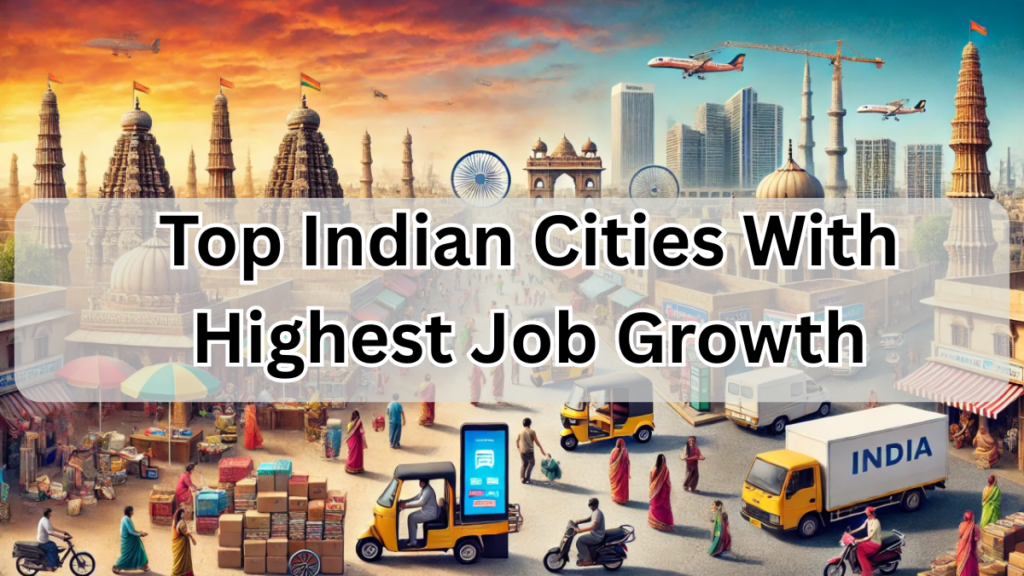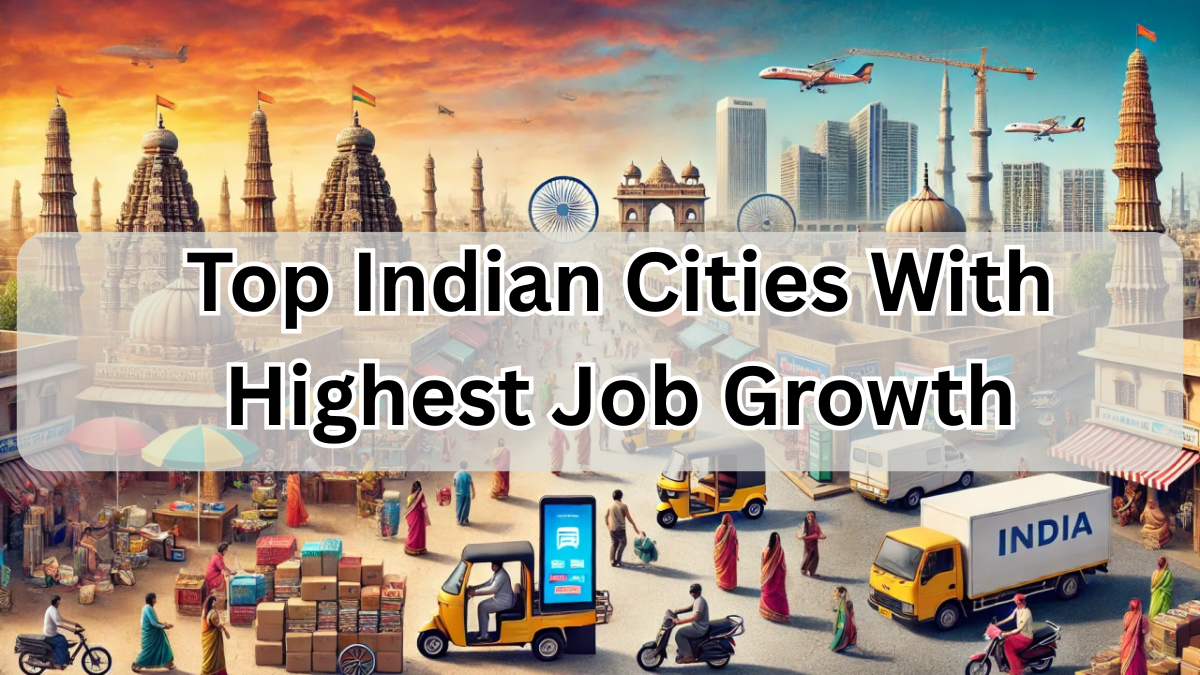The Indian job market is witnessing a dynamic shift. While metros like Bengaluru, Mumbai, and Delhi have long been considered career powerhouses, 2025 is poised to be the year of Tier 2 cities. With digital penetration, infrastructure development, and widespread talent availability, these emerging hubs are driving the future of employment.
Whether you’re a job seeker, HR professional, or business leader, understanding the India job market trends for 2025 will be crucial. Let’s explore the fastest hiring cities and why employment opportunities in Tier 2 cities are booming.

Why Tier 2 Cities Are Booming in 2025
Once known for their calm lifestyles and lower living costs, Tier 2 cities are now becoming talent magnets. Here’s why:
-
Cost Advantage for Businesses: Lower operational costs are drawing startups and MNCs alike.
-
Digital Infrastructure: Government initiatives like Digital India have improved connectivity.
-
Reverse Migration: Post-pandemic preferences for work-life balance are bringing professionals back home.
-
Local Talent Pools: Universities and skilling centers in smaller cities are supplying quality talent.
Fastest Hiring Cities in India: Tier 2 Stars of 2025
Here’s a look at the job growth cities in India 2025, especially those surprising everyone with their meteoric rise:
| City | Job Sectors in Demand | Why It’s Booming |
|---|---|---|
| Indore | IT, E-commerce, Fintech | Start-up hub, strong infrastructure |
| Chandigarh | BPO, Education Tech, Healthcare | High literacy, planned city benefits |
| Coimbatore | Manufacturing, Textiles, IT Services | Engineering talent, industrial legacy |
| Bhubaneswar | Analytics, Government Projects, IT | Smart city tag, tech park developments |
| Lucknow | Retail, Logistics, Financial Services | Growing startup ecosystem, investor interest |
| Jaipur | Tourism, IT, Handicrafts, E-commerce | Cultural capital with a digital twist |
| Nagpur | Logistics, Education, IT | Geographical advantage, upcoming metro systems |
These are the fastest hiring cities to keep your eye on in 2025.
Key Sectors Fueling the Surge
Here are the industries driving Tier 2 job growth:
-
Information Technology – Remote-friendly and cost-effective setups.
-
E-commerce & Logistics – Growing demand for hyperlocal delivery.
-
Healthcare & Pharma – Regional healthcare expansion post-pandemic.
-
Manufacturing & Automation – “Make in India” is thriving outside metros.
-
Education & EdTech – Online learning platforms are investing locally.
India Job Market Trends to Watch in 2025
Understanding the larger hiring landscape is essential for both professionals and employers:
| Trend | Impact |
|---|---|
| Hybrid work adoption | Tier 2 job seekers getting access to metro jobs |
| AI and automation integration | Upskilling is key, especially in Tier 2 regions |
| Inclusion of semi-urban talent pools | Broader diversity in hiring |
| Localized expansion of global companies | MNCs are opening regional offices for outreach |
The shift is not just urban, it’s glocal — global ambition with local roots.
What This Means for Job Seekers
If you’re hunting for your next big opportunity, this is your moment. Here’s how to make the most of it:
-
Broaden your search: Don’t restrict yourself to Tier 1 cities.
-
Upskill for emerging sectors like data science, logistics, and cloud tech.
-
Network locally: Join city-based LinkedIn groups and job boards.
-
Be open to hybrid roles: Many Tier 2 cities now offer remote-flexible options.
FAQs:
Q1. What are the top Tier 2 cities driving job growth in 2025?
A1. Cities like Indore, Chandigarh, Coimbatore, and Bhubaneswar are leading in terms of hiring and development across sectors such as IT, logistics, and manufacturing.
Q2. Are there real employment opportunities in Tier 2 cities?
A2. Absolutely. In fact, many startups and MNCs are setting up operations in Tier 2 locations due to talent availability and lower costs.
Q3. What sectors are creating jobs in Tier 2 cities?
A3. Key industries include IT, e-commerce, logistics, healthcare, and education—supported by government schemes and local entrepreneurship.
Q4. How do Tier 2 cities compare to metros in job quality and salary?
A4. While salaries may be slightly lower, the cost of living is much less. Also, hybrid work models allow Tier 2 professionals to earn metro-level compensation.
Final Thoughts
India’s economic growth is no longer confined to the big metros. With Tier 2 cities driving innovation, talent, and infrastructure, employment opportunities in Tier 2 cities are not just rising—they’re thriving.
Click here to learn more
